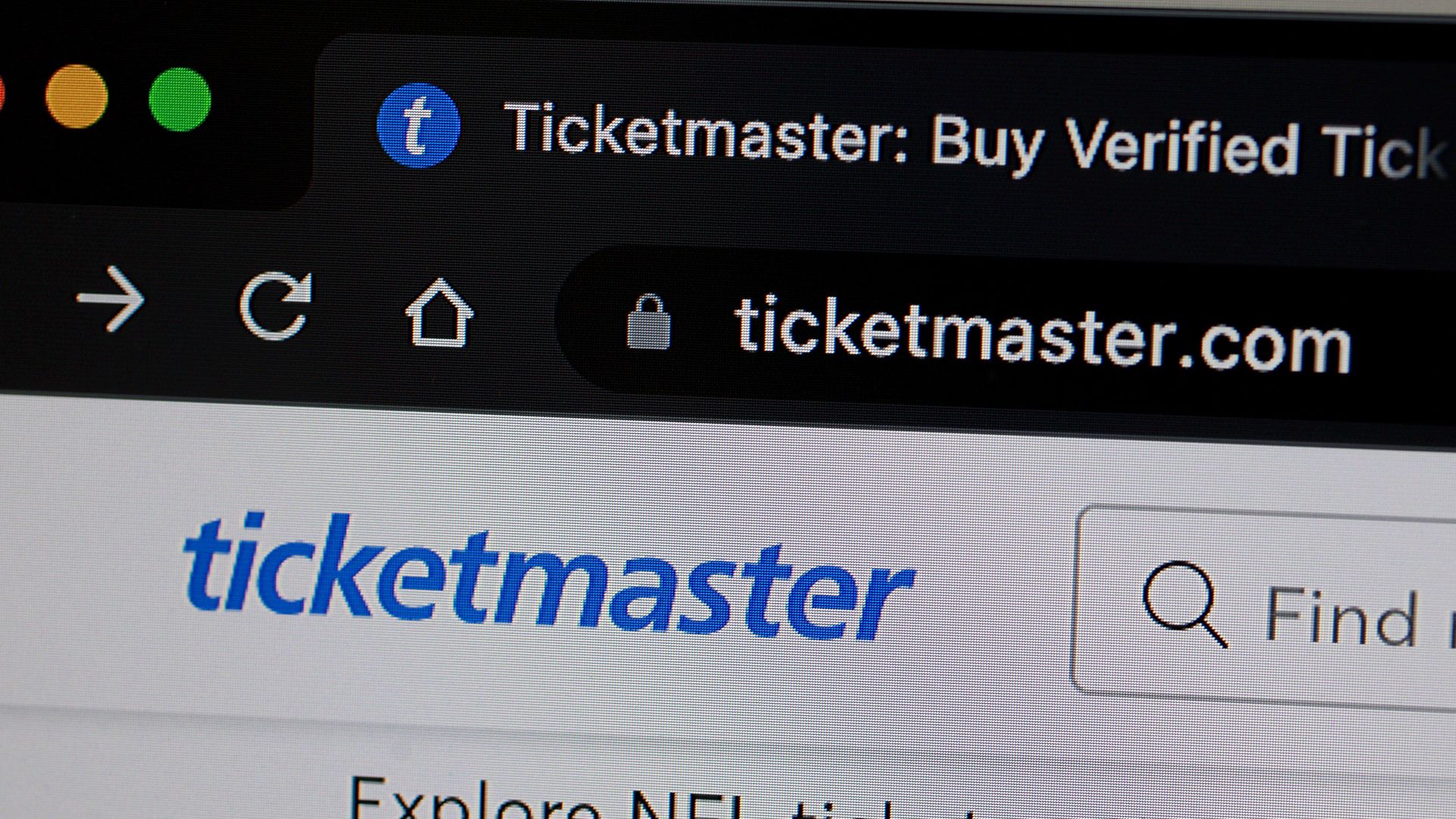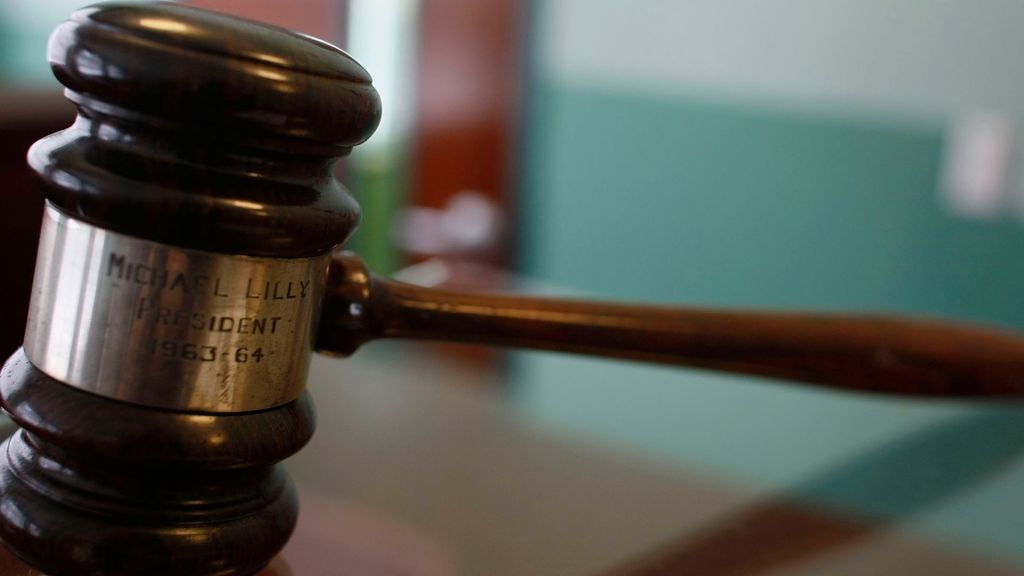
SHANNON LONGWORTH: BATTLING BOTS FOR SEATS…WAITING IN HOURS-LONG QUEUES ONLY TO FACE OUTRAGEOUSLY HIGH PRICES…AND PAYING HUNDREDS IN SERVICE FEES.
UNTIL RECENTLY, TICKETMASTER’S BEEN RELATIVELY UNTOUCHABLE WHEN IT COMES TO LEGAL ACTION FROM FANS. BUT A RECENT RULING COULD CLEAR A PATH FOR SWIFTIES TO HAVE THEIR DAY IN COURT.
JULIE BARFUSS: “IF WE CAN’T ADVOCATE FOR A BETTER WAY FOR CONSUMERS TO BE ABLE TO PARTICIPATE, EVENTUALLY, IT’S GOING TO BE ONLY THE RICH AND ONLY THE PRIVILEGED HAVE THE ABILITY TO PARTICIPATE IN LIFE, ENTERTAINMENT.”
LONGWORTH: JULIE BARFUSS IS THE LEAD PLAINTIFF IN A LAWSUIT AGAINST TICKETMASTER’S OWNER, LIVE NATION. FILED IN DECEMBER 2022, THE SUIT CLAIMS BREACH OF CONTRACT, FRAUD, NEGLIGENCE, NEGLIGENT MISREPRESENTATION AND ANTITRUST VIOLATIONS.
BASICALLY SHE’S CALLING OUT LIVE NATION FOR HAVING A MONOPOLY.
BARFUSS: “HONESTLY I’M NOT, I’VE NEVER BEEN IN IT FOR THE MONEY. AND OBVIOUSLY, LIKE THE US LEG OF THE TOUR IS OVER. I’M NOT IN IT FOR THE TICKETS EITHER. I NEVER REALLY WAS. I HAVE THE ABILITY TO BUY TICKETS ON THE SECOND HAND MARKET. I DID MAKE IT TO A CONCERT. BUT I WOULD LOVE TO SEE SOME CHANGE.”
TICKETMASTER IS OFTEN THE ONLY TICKETING DISTRIBUTOR FOR BIG EVENTS…UNLESS YOU TURN TO THE RESALE MARKET.
AND THE COMPANY HAS LONG PROTECTED ITSELF FROM LENGTHY, EXPENSIVE TRIALS WITH AN “ARBITRATION CLAUSE.”
JENNIFER KINDER: “BACK WHEN I WAS FIRST THINKING ABOUT FILING THIS LAWSUIT, ALL THE NAYSAYERS–THERE WERE A LOT OF NAYSAYERS–AND THE BIGGEST COMMENT THAT WAS MADE TO US IS, ‘YOU’LL NEVER GO ANYWHERE, BECAUSE YOU ALL OF FOUR INDIVIDUAL CASES AGREE TO ARBITRATION.’”
LONGWORTH: THE CLAUSE IS IN THE TERMS OF USE. YOU CHECK A BOX AND AGREE TO IT ON TICKETMASTER’S SITE….ESSENTIALLY ABANDONING YOUR RIGHT TO SUE THE COMPANY.
IN AUGUST, LIVE NATION’S ATTEMPT TO PUSH PLAINTIFFS INTO PRIVATE ARBITRATION FAILED. US DISTRICT JUDGE GEORGE WU, WHO PRESIDES OVER THE SWIFTIES’ CASE, RULED IN HECKMAN V. LIVE NATION ENTERTAINMENT THAT MASS ARBITRATION *COULD BE* FUNDAMENTALLY UNFAIR TO FANS. THIS RULING MAY CREATE AN OPPORTUNITY FOR THE SWIFTIES TO AVOID ARBITRATION AND LAY THE GROUNDWORK FOR OTHER SIMILAR CASES.
BARFUSS: “TO ME, LIVE NATION, IT’S TOO BIG OF A MONOPOLY, THEY HAVE TOO BIG OF A STRANGLEHOLD ON THE MARKET. I WOULD LOVE TO SEE THAT BROKEN UP A LITTLE BIT. AND I DON’T KNOW THAT OUR LAWSUIT IS THE THING THAT WOULD BE THE TIPPING POINT ON THAT. BUT I FEEL LIKE IT’S JUST A DROP IN THE BUCKET, AND EVERY DROP IN THE BUCKET BUILDS UP AGAINST THEM.”
KINDER: “ANTITRUST IS UNSEXY AND IS UNAPPEALING AND AS BORING A CONCEPT AS IT IS…THE TRUTH IS IT’S JUST CONSUMER PROTECTION. AND THERE IS NOTHING MORE IMPORTANT TO YOU AND I EVERY DAY AS CONSUMERS WHEN WE GO TO THE GROCERY STORE, WHEN WE BUY SCHOOL SUPPLIES FOR OUR KIDS, WHEN WE BURY OUR PARENTS, WHEN WE BUY A CAR, THERE IS NO MORE IMPORTANT ISSUE THAN CONSUMER PROTECTION.”
LONGWORTH: WHILE THE FANS PURSUE LITIGATION AND FRUSTRATION PEAKS, SOME ARTISTS HAVE TRIED TO CHANGE THE SYSTEM.
AFTER BOYCOTTING THE COMPANY AND DROPPING A LIVE ALBUM TITLED “ALL MY HOMIES HATE TICKETMASTER,” COUNTRY SINGER ZACH BRYAN RETURNED TO IT FOR HIS UPCOMING TOUR. IN SEPTEMBER, HE TWEETED, “ONE GUY CAN’T CHANGE THE WHOLE SYSTEM.”
THE CURE TRIED STICKING WITH TICKETMASTER FOR ITS FIRST US TOUR IN SEVEN YEARS…BUT MADE TICKETS NON-TRANSFERABLE AND OPTED NOT TO USE DYNAMIC PRICING, WHICH RAISES PRICES WITH DEMAND. STILL, FANS WERE UPSET OVER FEES AND TECHNICAL ISSUES.
EARLIER THIS YEAR, MAGGIE ROGERS HELD A PRE-SALE FOR FANS TO SHOW UP IN PERSON AT THEIR LOCAL BOX OFFICE. BUT THAT’S NOT POSSIBLE FOR A STADIUM TOUR LIKE SWIFT’S. TICKETMASTER IS THE DOMINANT VENDOR FOR MAJOR VENUES IN THE US.
MEANWHILE, POLITICO REPORTS THE DEPARTMENT OF JUSTICE COULD FILE AN ANTITRUST LAWSUIT AGAINST LIVE NATION AND TICKETMASTER IN THE COMING MONTHS.
TICKETMASTER HAS REPEATEDLY DENIED ENGAGING “IN BEHAVIORS THAT COULD JUSTIFY ANTITRUST LITIGATION.”











